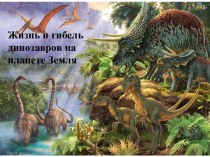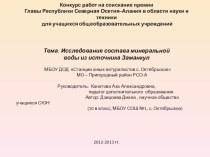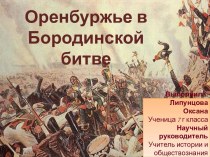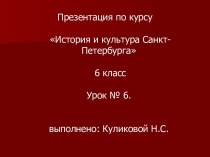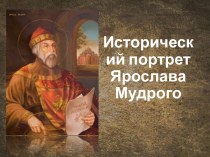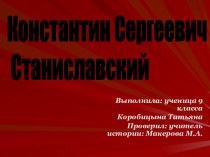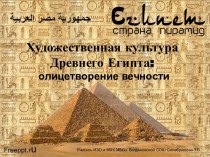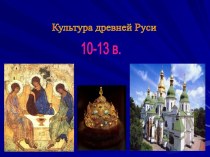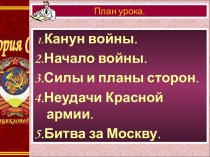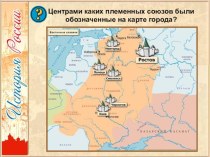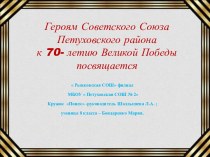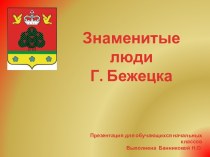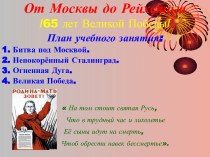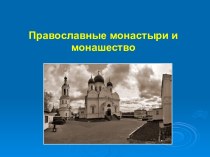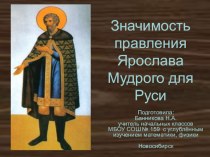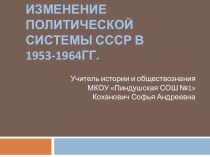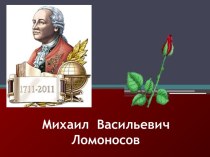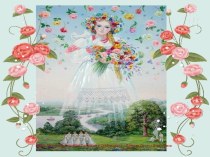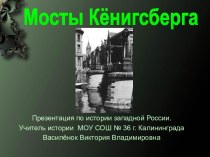- Главная
- Разное
- Бизнес и предпринимательство
- Образование
- Развлечения
- Государство
- Спорт
- Графика
- Культурология
- Еда и кулинария
- Лингвистика
- Религиоведение
- Черчение
- Физкультура
- ИЗО
- Психология
- Социология
- Английский язык
- Астрономия
- Алгебра
- Биология
- География
- Геометрия
- Детские презентации
- Информатика
- История
- Литература
- Маркетинг
- Математика
- Медицина
- Менеджмент
- Музыка
- МХК
- Немецкий язык
- ОБЖ
- Обществознание
- Окружающий мир
- Педагогика
- Русский язык
- Технология
- Физика
- Философия
- Химия
- Шаблоны, картинки для презентаций
- Экология
- Экономика
- Юриспруденция
Что такое findslide.org?
FindSlide.org - это сайт презентаций, докладов, шаблонов в формате PowerPoint.
Обратная связь
Email: Нажмите что бы посмотреть
Презентация на тему Famous American Persons of the Past. History of the USA
Содержание
- 2. Discovery of America Christopher Columbus discovered America
- 3. Colonisation of AmericaIn the 1770s there were
- 4. The Revolutionary WarBy the mid 1700's, it
- 5. Boston Tea PartyThe Boston Tea Party was
- 6. The first presidentGeorge Washington was born on
- 7. Declaration of IndependenceThe history of the United
- 8. The third PresidentThomas Jefferson (April 13, 1743
- 9. Benjamin Franklin — American politician B. Franklin
- 10. Benjamin studied only a couple of years
- 11. American Civil WarThe 1860 election of Abraham
- 12. The 16th President of the United StatesAbraham
- 13. In 1864 Abraham Lincoln was elected the
- 14. Twenty-Sixth President.Theodore Roosevelt became the youngest President
- 15. Roosevelt steered the United States more actively
- 16. The 33rd President of the United StatesHarry
- 17. Great DepressionThe 1930s were the years of
- 18. Workers lost their jobs as factories closed.
- 19. The 35 th President of the USAJohn
- 20. The Cold War. The confrontation between the
- 22. Скачать презентацию
- 23. Похожие презентации
Discovery of America Christopher Columbus discovered America in 1492.He thought that he came to India so he called the people who lived there Indians.
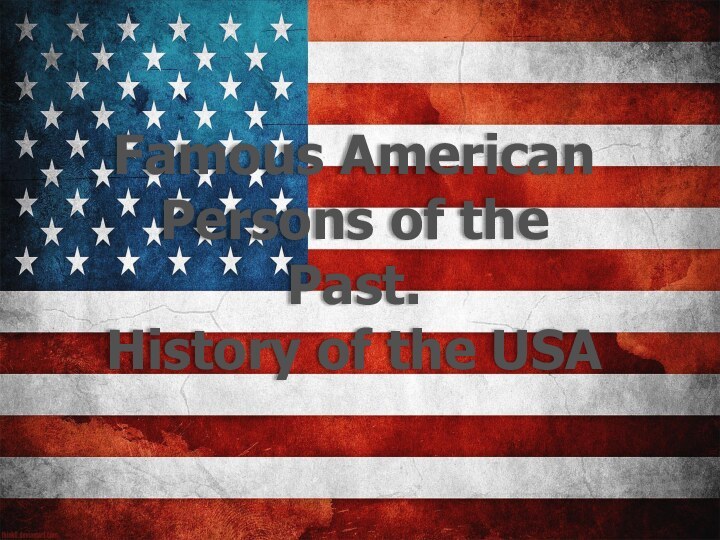


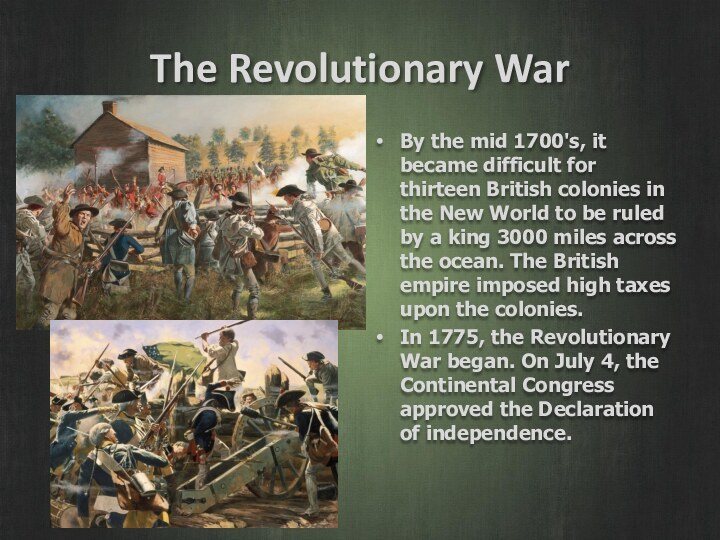

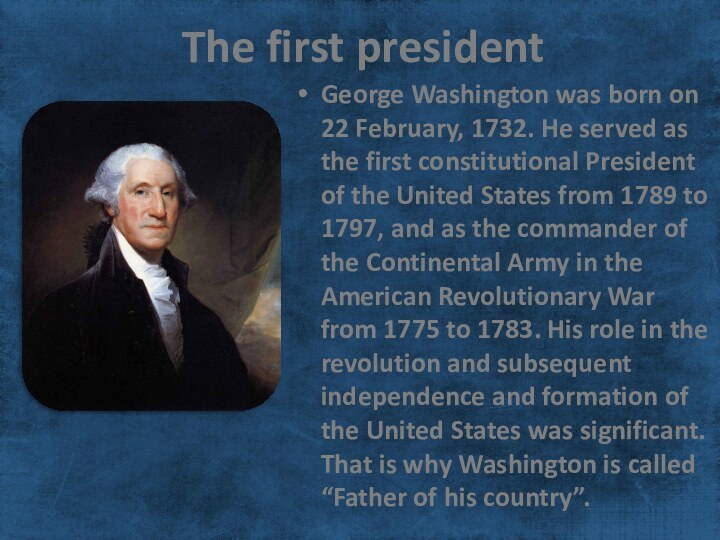
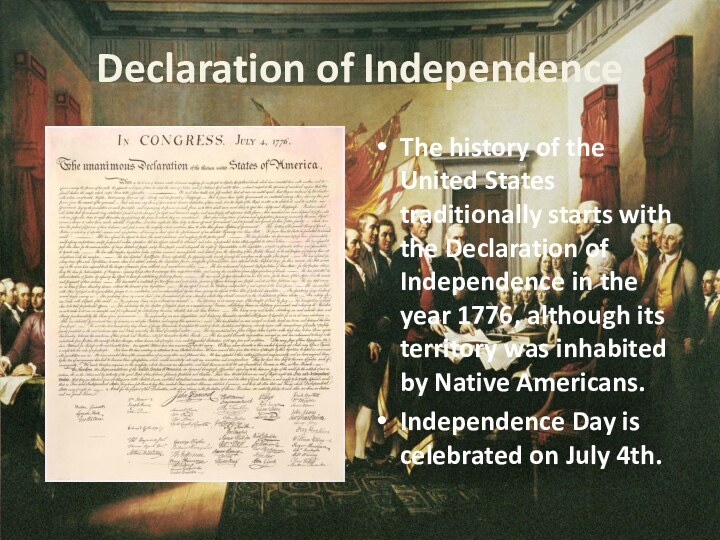

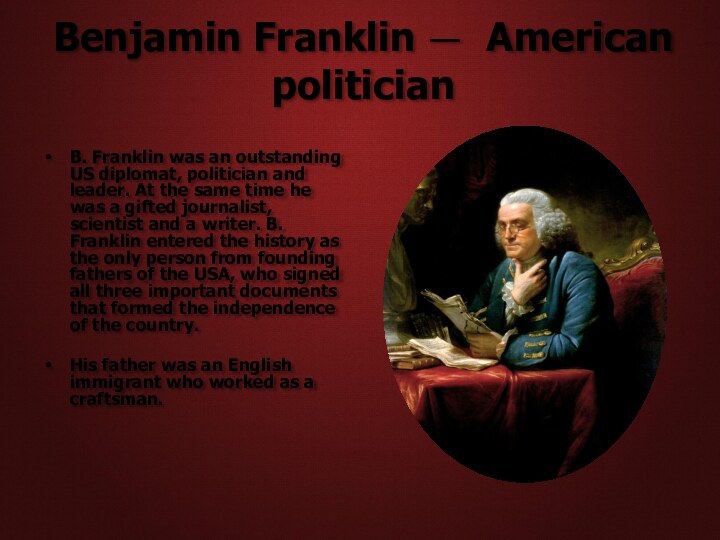

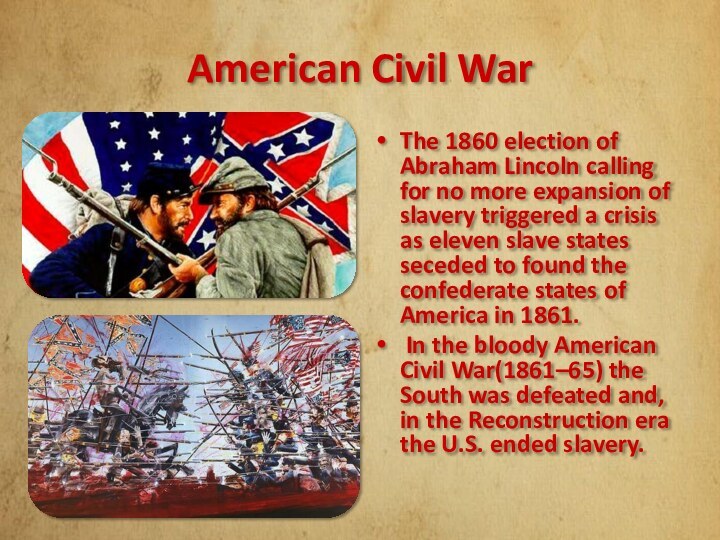
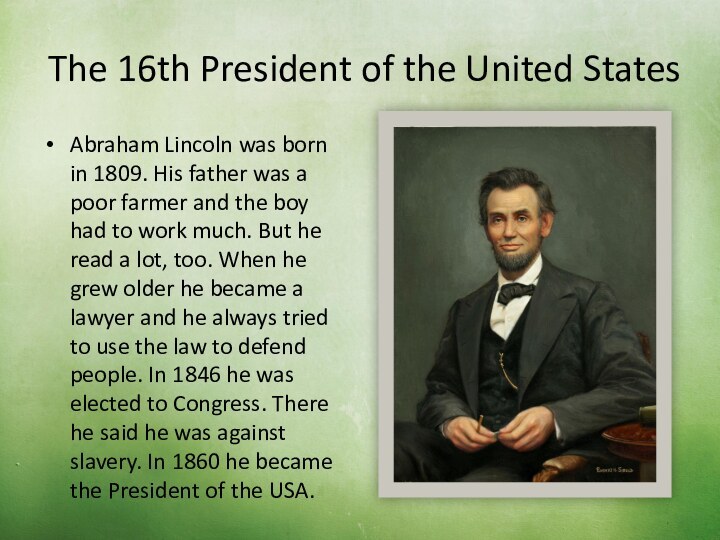

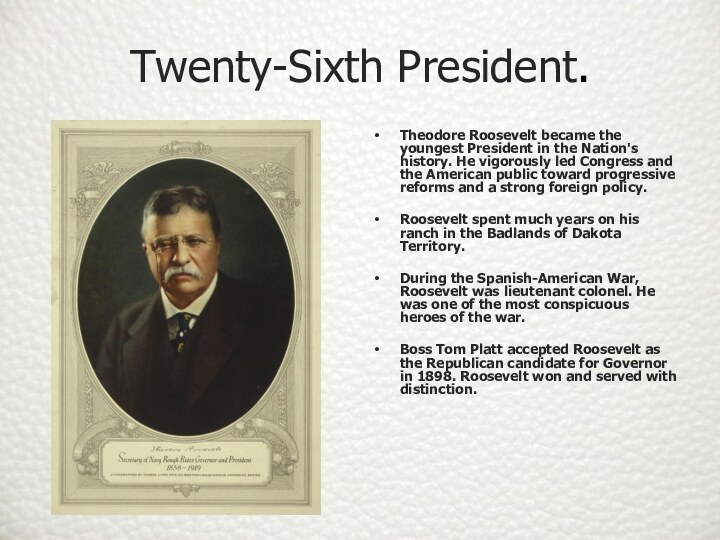
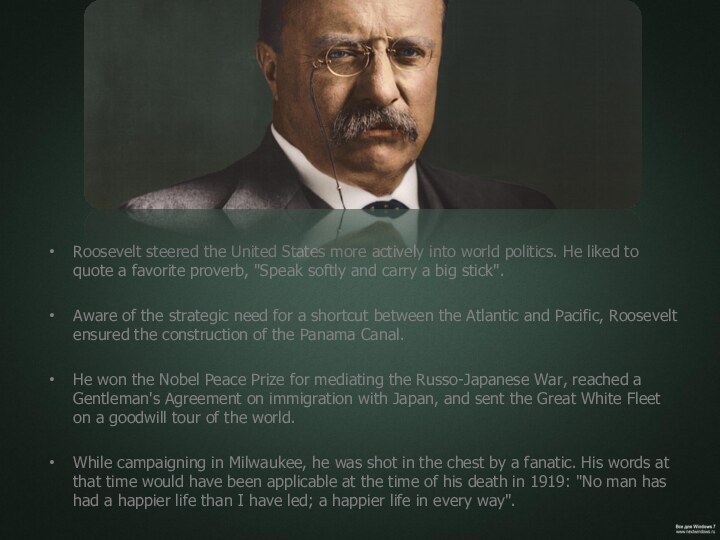

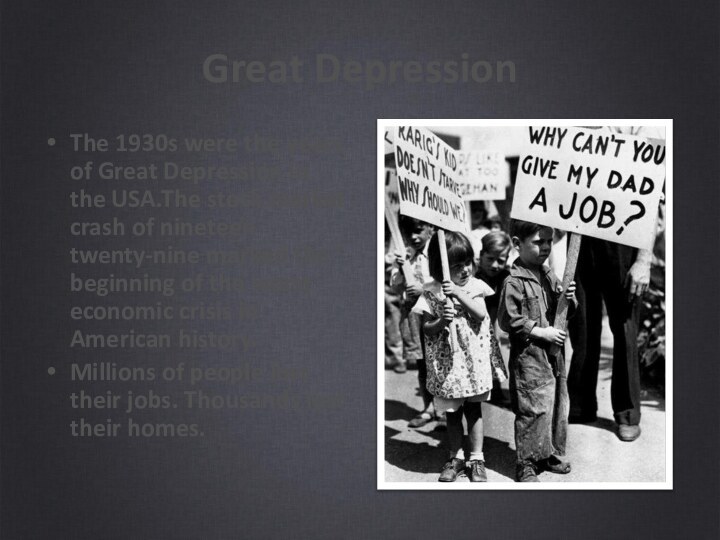

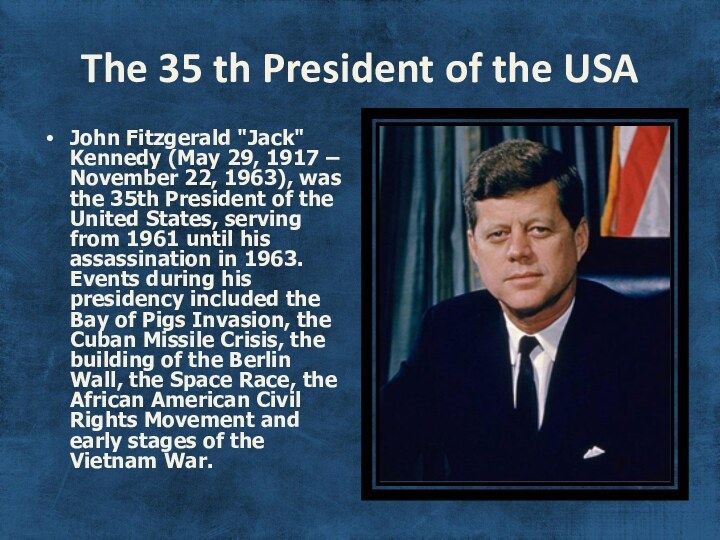
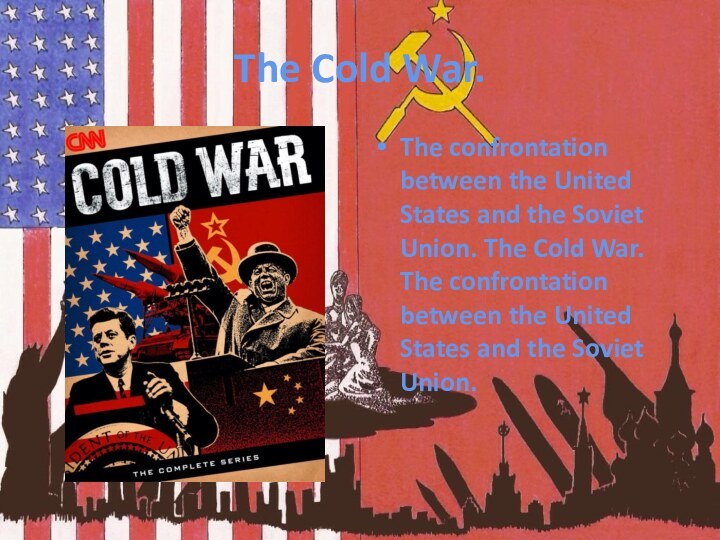

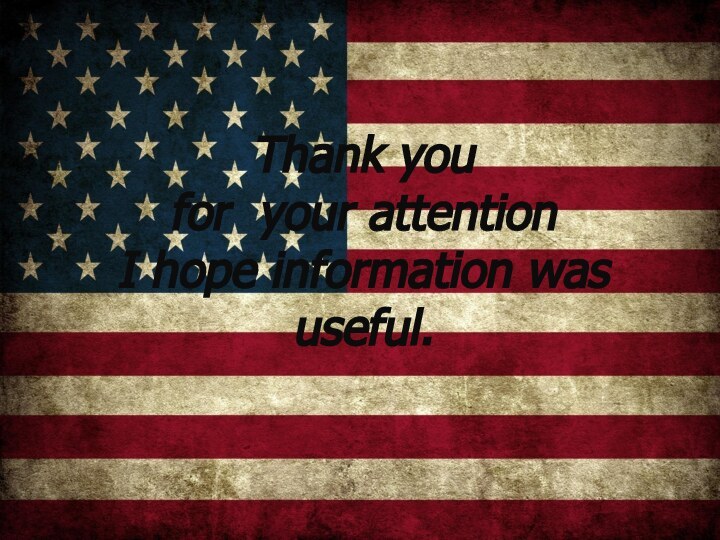
Слайд 3
Colonisation of America
In the 1770s there were 13
colonies with
2.5 million people.
During the first winter
half of them died.
Слайд 4
The Revolutionary War
By the mid 1700's, it became
difficult for thirteen British colonies in the New World
to be ruled by a king 3000 miles across the ocean. The British empire imposed high taxes upon the colonies.In 1775, the Revolutionary War began. On July 4, the Continental Congress approved the Declaration of independence.
Слайд 5
Boston Tea Party
The Boston Tea Party was a
heroic event which took place on 16th December 1773
in Boston, Massachusetts. A group of colonists boarded a ship carrying tea in disguise and threw all the tea in the sea. This is one of the most popular events in the history of America and also considered a pioneer in the American War of Independence against the European colonies.
Слайд 6
The first president
George Washington was born on 22
February, 1732. He served as the first constitutional President
of the United States from 1789 to 1797, and as the commander of the Continental Army in the American Revolutionary War from 1775 to 1783. His role in the revolution and subsequent independence and formation of the United States was significant. That is why Washington is called “Father of his country”.
Слайд 7
Declaration of Independence
The history of the United States
traditionally starts with the Declaration of Independence in the
year 1776, although its territory was inhabited by Native Americans.Independence Day is celebrated on July 4th.
Слайд 8
The third President
Thomas Jefferson (April 13, 1743 –
July 4, 1826) was the principal author of the
Declaration of Independence (1776) and the Statute of Virginia for Religious Freedom (1777), the third President of the United States (1801–1809) and founder of the University of Virginia (1819).[1] He was an influential Founding Father and an exponent of Jeffersonian democracy.
Слайд 9
Benjamin Franklin — American politician
B. Franklin was an
outstanding US diplomat, politician and leader. At the same
time he was a gifted journalist, scientist and a writer. B. Franklin entered the history as the only person from founding fathers of the USA, who signed all three important documents that formed the independence of the country.His father was an English immigrant who worked as a craftsman.
Слайд 10 Benjamin studied only a couple of years at
school and then he joined other brothers at work.
For many years printing was the main occupation for the future politician. In 1727 at the age of twenty-one he opened his own printing press in Philadelphia.Starting from 1750s he worked as a Postmaster. Approximately at that time his political career began. In 1754, during the first Albany Congress he was among those who initiated and led the event.
Later, he proposed a plan for the colonial unification. B. Franklin occupied many honorable posts and was undoubtedly one of the most respectable leaders in the American history.
He is remembered as an extremely versatile person and an outstanding scientist. When he died in 1790 in Philadelphia, his funeral gathered unbelievably huge crowds. As an inventor he made valuable contributions in the field of physics, namely in the field of electricity and electrical power
Слайд 11
American Civil War
The 1860 election of Abraham Lincoln
calling for no more expansion of slavery triggered a
crisis as eleven slave states seceded to found the confederate states of America in 1861.In the bloody American Civil War(1861–65) the South was defeated and, in the Reconstruction era the U.S. ended slavery.
Слайд 12
The 16th President of the United States
Abraham Lincoln
was born in 1809. His father was a poor
farmer and the boy had to work much. But he read a lot, too. When he grew older he became a lawyer and he always tried to use the law to defend people. In 1846 he was elected to Congress. There he said he was against slavery. In 1860 he became the President of the USA.
Слайд 13
In 1864 Abraham Lincoln was elected the President
again, but a year later he was killed by
his enemies in a theatre in Washington.
Слайд 14
Twenty-Sixth President.
Theodore Roosevelt became the youngest President in
the Nation's history. He vigorously led Congress and the
American public toward progressive reforms and a strong foreign policy.Roosevelt spent much years on his ranch in the Badlands of Dakota Territory.
During the Spanish-American War, Roosevelt was lieutenant colonel. He was one of the most conspicuous heroes of the war.
Boss Tom Platt accepted Roosevelt as the Republican candidate for Governor in 1898. Roosevelt won and served with distinction.
Слайд 15
Roosevelt steered the United States more actively into
world politics. He liked to quote a favorite proverb,
"Speak softly and carry a big stick".Aware of the strategic need for a shortcut between the Atlantic and Pacific, Roosevelt ensured the construction of the Panama Canal.
He won the Nobel Peace Prize for mediating the Russo-Japanese War, reached a Gentleman's Agreement on immigration with Japan, and sent the Great White Fleet on a goodwill tour of the world.
While campaigning in Milwaukee, he was shot in the chest by a fanatic. His words at that time would have been applicable at the time of his death in 1919: "No man has had a happier life than I have led; a happier life in every way".
Слайд 16
The 33rd President of the United States
Harry S.
Truman (May 8, 1884 – December 26, 1972) was
the 33rd President of the United States (1945–1953). Truman's presidency was also eventful in foreign affairs, with the defeat of Nazi Germany and his decision to use nuclear weapons against Japan, the founding of the United Nations, the Marshall Plan to rebuild Europe, the Truman Doctrine to contain communism, the beginning of the Cold War, the Berlin Airlift, the creation of the North Atlantic Treaty Organization (NATO), Chinese Civil War, and the Korean War.
Слайд 17
Great Depression
The 1930s were the years of Great
Depression in the USA.The stock market crash of nineteen
twenty-nine marked the beginning of the worst economic crisis in American history.Millions of people lost their jobs. Thousands lost their homes.
Слайд 18
Workers lost their jobs as factories closed. Business
owners lost their stores and sometimes their homes.
Farmers lost
their land as they struggled with falling prices and natural disasters.
Слайд 19
The 35 th President of the USA
John Fitzgerald
"Jack" Kennedy (May 29, 1917 – November 22, 1963),
was the 35th President of the United States, serving from 1961 until his assassination in 1963. Events during his presidency included the Bay of Pigs Invasion, the Cuban Missile Crisis, the building of the Berlin Wall, the Space Race, the African American Civil Rights Movement and early stages of the Vietnam War.
Слайд 20
The Cold War.
The confrontation between the United
States and the Soviet Union. The Cold War. The
confrontation between the United States and the Soviet Union.Слайд 21
September 11
September 11, 2001 is
the most tragic hour in the history of the United States, this terror kamikaze attack was called a second Pearl Harbour.This day of unspeakable horror for New York and the whole American nation, terrorists crashed planes into the World Trade Centre and the Pentagon. It was the deadliest assault on the U.S. in its history. Thousands of lives were suddenly ended.
